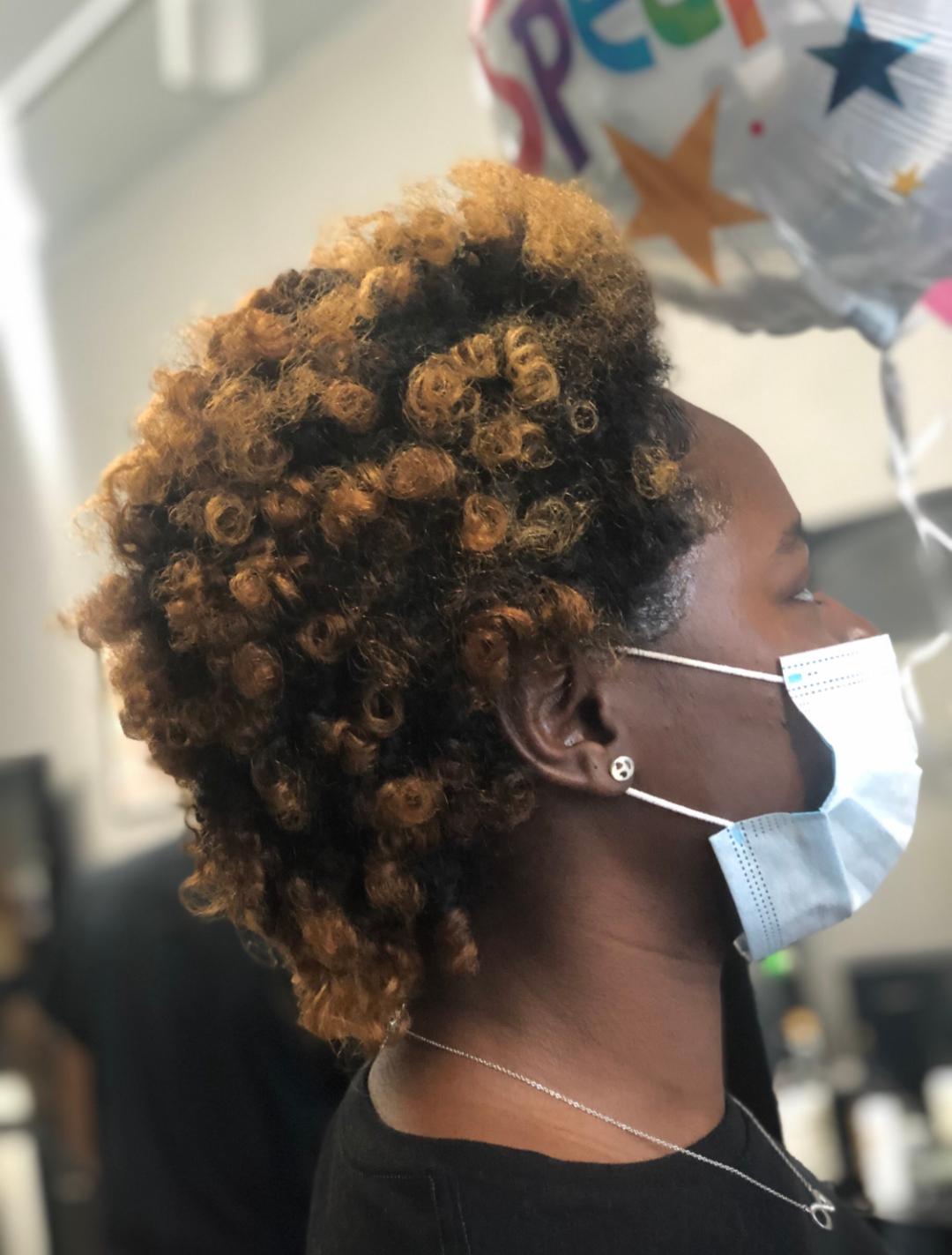 |
| Maisie Dunbar our Liberian girl! |
Well certain folk has turned the "natural hair" care movement into battle of the textures versus those who chemically alter their hair, wears weaves or uses synthetic products against the "Black and Proudness" embrace your texture "natur hair" care promoters. This war is not declared in as much as it it spoken via the blasphemous comments made about our textured hair sister Gabby Douglas, the Olympic Gold Medalist and Pam Oliver of FOX during her coverage of the NFL.
In the beginning "natural hair" crusade was suppose to be about natural hair. Everywhere you turned there was a natural hair workshop or twist out seminar or make your own hair care product training or a how to loc your hair demonstration and the likes. These types of information sessions were taking places nation wide from basements, to salons to large convention venues.
 |
| Fatou our Gambian sister |
 |
| Our sister from Mali. |
Not only does one not have to be a geneticist or archaeologist or cosmetologist; one does not also have to be a economist to predict a decline in the sales and future closings of anything that reads "natural" hair. Consumers have the upper hand in this and they will not stand or march for it. What they will do is NOT pay for it. Just as Eddie Murphy shut down the sales of the alleged recession proof "Jheri Curl" via his "Soul Glo" scene in the hit movie, "Coming to America;" the same is sure to follow in the demise of "natural" hair care products and events via the taunting, teasing and subliminal judging done by us to us to push this natural hair care thing down women of color throats.
 |
| Soul Glo scene from Coming to America |
"Success leaves clues," says the wise old New York Times best selling author, Jim Collins. Have you ever heard of a needle designed for "fat" people? A doctor would never use it. Have you ever heard of a "Mexican" dish prepared for "ethnic" people? A chef would never serve it. Have you ever heard of "soap" for "skinny" people? A dermatologist would not prescribe it.
 |
| Our Somalian sister. |
Different textures for different folks. It is true that textured hair has its roots in Africa. By the images I have inserted in this blog it is clear to see that ALL people from the CONTINENT of Africa do not have the AFRO hair. All people with textured hair are not Africans, African Americans, Black, Ethnic, Women of Color, Mixed, Bi-Racial, Exotic and so on. People with textured hair are just that, people with textured hair. I can tell you from a behind the chair experience that honestly people with textured hair prefer you work and teach them how to style and care for THEIR "unique hair fabric" as Philip Pelusi promotes. They do not want cosmetologists, hair stylists, hair care companies, natural hair people and everybody in between associating the color of the skin with what we THINK their textured hair should LOOK like.
Still have doubts? "We all do not want the same thing," says Rhonda Byrne author of The Secret. Different textures on different folks.


